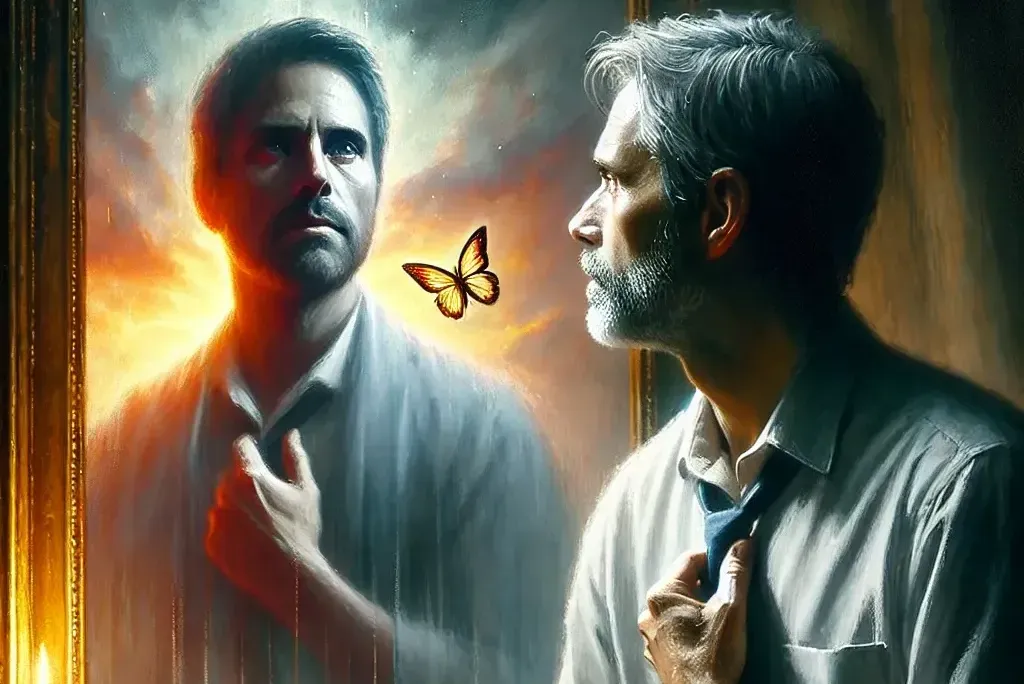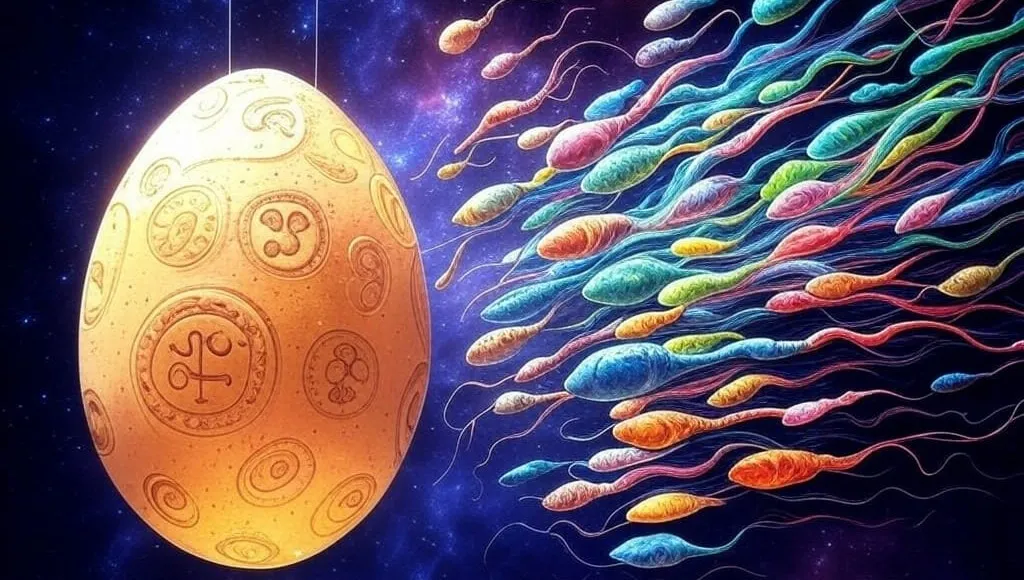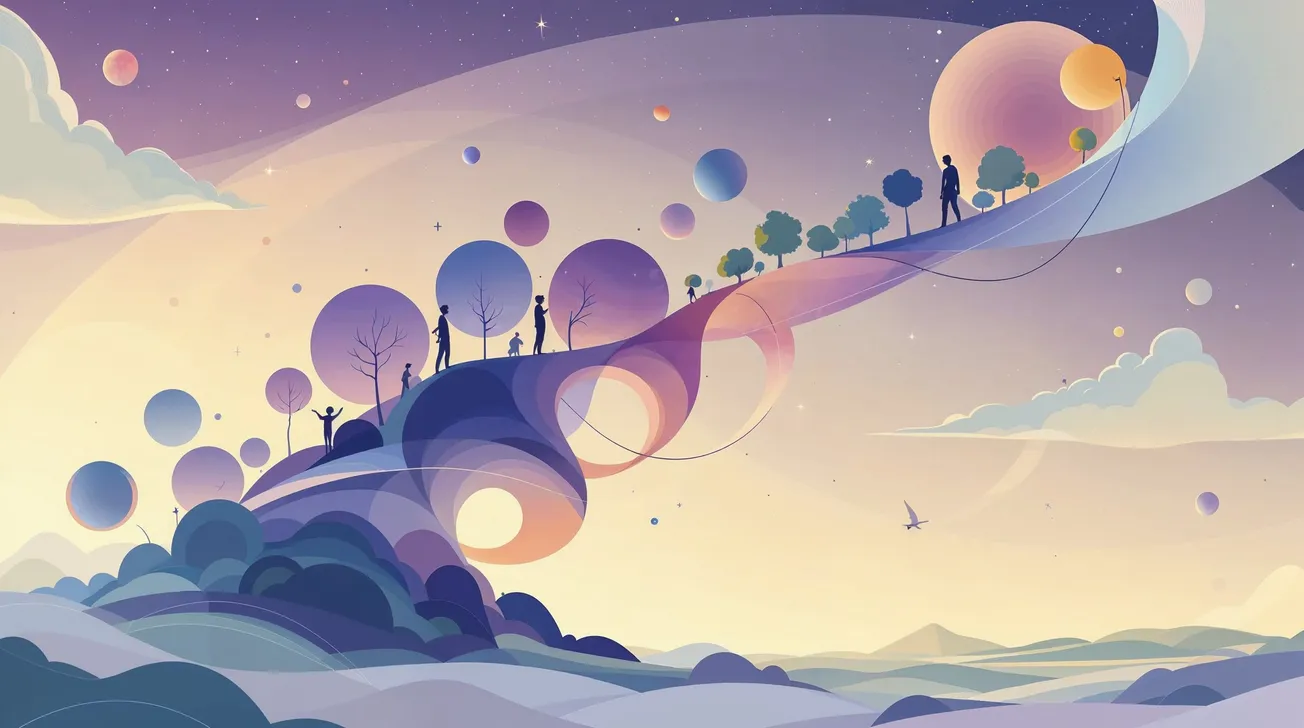In Search of a useful, pragmatic Definition of God
Is the best version of ourselves
Is the vision of what we could become together—a world where everyone strives to be brave, kind, and wise.
Is a perfect Mirror that shows us our full potential.
Is a shared dream, of a better humanity, inspiring us to lift each other up and grow as one.
It’s not a perfect place we’ll ever fully reach, but it’s the direction we aim for.
what God really is?
Not the Sunday school version, but something that actually makes sense in today’s world? This isn’t about easy answers—honestly, I don’t have them all, and maybe no one does. But let’s try to figure it out together, step by step, in a way that’s clear and real. We’re talking big ideas here—God, science, technology—but I’ll keep it simple and direct, like a friend explaining something they’ve been thinking about.
God Isn’t What You Might Think
First off, let’s ditch the idea of God as some old guy in the sky judging you. That’s not what we’re talking about. Instead, picture this: God is like the ultimate role model. Think of all the people you admire—maybe a musician who’s super talented, an athlete who never gives up, or a friend who’s just really good at life. What makes them special? Their courage, kindness, or maybe how they handle tough situations?
Now, imagine taking all those amazing qualities from everyone you look up to and combining them into one idea. That’s kind of what God could be: the best possible version of humanity. It’s not a person—it’s a pattern. Something we can aim for to live better, to thrive. When you admire someone and think, “I want to be like that,” that’s a natural human thing. It’s like worship, but not in a creepy way—just wanting to learn and grow.
So, God might be this:
the highest standard of what we could be
Admiration Is a Big Deal
Let’s dig into that admiration thing more. You know how you look up to certain people? Kids do it with superheroes or YouTubers. Adults do it too—maybe with a boss, a writer, or someone who’s just got their life together. When you admire someone, you’re saying, “There’s something about them I want for myself.” It’s not just liking them—it’s wanting to copy them, to be like them.
That’s worship at its core. Not bowing to a statue, but looking at someone and thinking, “That’s worth following.” Imagine if you took every person you admire and pulled out the best parts of them—courage, honesty, creativity—and kept refining it until you had the purest version of “good.” That’s as close as we might get to defining God. It’s not a scientific fact or a rulebook. It’s something you feel and notice, not something I can prove on paper.
Science Believes in Something Bigger
Now, let’s switch gears to science. You might think science is all about cold facts and experiments. But here’s something wild: even scientists have to believe in something bigger than what they already know. When they make a theory—like “this is how gravity works”—they don’t just stop there. They test it against reality. And when reality doesn’t match their theory, they admit they were wrong and try again.
That “reality” they’re testing against? It’s beyond what they understand right now. It’s transcendent—bigger than their current knowledge. So, scientists have to trust that there’s more out there to discover, even if it messes up their plans. That takes humility. They can’t act like they’ve got it all figured out, because they don’t. None of us do.
Without that humility, science could go wrong. If you think you know everything, you stop asking questions—and that’s when mistakes happen. Ever heard someone say, “God is dead, science killed it”? Well, maybe not. Science might actually need that sense of something bigger to keep moving forward.
Tech Needs Humility Too
Speaking of science, let’s talk tech—especially stuff like AI and robotics. These things are advancing fast, and it’s exciting. Who doesn’t love a cool robot or a smart app? But here’s the catch: if we treat these tools like toys, we could be in trouble. It’s like building a car with no brakes—fun until it crashes.
Scientists and engineers need to stay humble. They’re not gods (lowercase “g”!). They don’t know everything about how their creations will affect the world. Take AI: it’s amazing, but it could also cause problems—think job losses, privacy issues, or even bigger stuff we can’t predict yet. That’s why ethics matter. We have to ask: How will this impact people? Society? The future?
History backs this up. When science ignores ethics—like in some creepy old experiments—it gets ugly. Tech isn’t just about “cool.” It’s about responsibility. We can’t assume we’ve got it all under control, because we don’t.
Connecting It All
So, where does this leave us? God, science, tech—it’s all tied together in a messy, complicated way. Here’s what I see:
- Aim high. Whether it’s God as a role model or the best parts of people you admire, we’re built to strive for something better.
- Stay humble. Scientists, tech folks, all of us—we don’t know everything. Admitting that keeps us grounded.
- Think bigger. Ethics in tech, humility in science, chasing a higher standard—it’s all about looking beyond ourselves.
I don’t have a perfect definition of God. Maybe it’s that pattern of goodness we chase. Maybe it’s the unknown that science keeps reaching for. Maybe it’s both—or neither. The truth is, we’re kind of in the dark here, and that’s okay. Not knowing is part of the deal.
What Do You Think?
Here’s the takeaway: these are big questions with no simple fixes. I’m not trying to sell you on anything—I’m just sharing what I’ve been chewing on. God might be a guide for how to live better. Science might need a sense of the unknown to work right. Tech might need ethics to not spiral out of control. But there’s so much we don’t get yet, and that’s fine.
What’s your take? Does this click for you, or is it still fuzzy? Let’s keep talking about it. The best way to figure stuff out is to stay curious and keep asking questions together.





